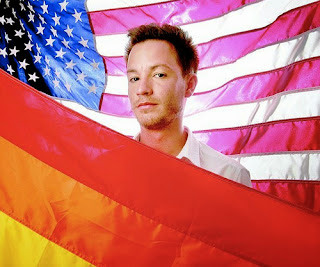“US Foreign Policy Stresses LGTB Rights” NSA Susan Rice
Global LGBT rights factored into Human Rights First’s annual summit that took place this week at the Newseum in downtown Washington.
National Security Adviser Susan Rice stressed support of LGBT rights remains an essential part of U.S. foreign policy during a speech she gave on Dec. 4. U.S. Sen. Patrick Leahy (D-Vt.) on Thursday said equality for LGBT people, women, immigrants and those with disabilities are “examples of what we can accomplish if we persevere against what is often long-standing prejudices.”
Florida Congresswoman Ileana Ros-Lehtinen on Thursday criticized the Russian and Cuban governments’ human rights records.
The Republican, whose family fled Cuba after the 1959 Cuban Revolution during which Fidel Castro took power, singled out Mariela Castro, daughter of Cuban President Raúl Castro. Ros-Lehtinen again criticized the Philadelphia-based Equality Forum and other organizations that have honored Mariela Castro for her LGBT advocacy efforts in Cuba.
“Mariela Castro does not support LGBT rights, no matter how many fake awards and medals are bestowed upon her,” Ros-Lehtinen said. “It is fundamentally impossible to support LGBT rights without supporting human rights more generally.”
Jonathan Capehart of the Washington Post on Thursday moderated a panel on how the U.S. can advance LGBT rights abroad.
Russian journalist Masha Gessen, Kaspars Zalitis of the Latvian LGBT advocacy group Mozaika and Jovanka Todorovic of Labris-Lesbian Human Rights Organization of Serbia were panelists. Russian LGBT Network Chair Igor Kochetkov had also been scheduled to take part in the panel, but he cancelled his appearance at the summit due to recent threats against his organization.
“I am very sorry that I cannot be with you,” said Kochetkov in a statement that Capehart read. “The current situation around LGBT organizations is seriously complicated, with attacks on activists and ordinary members of the LGBT community.”
Gessen said during the panel she feels the Russian government has launched “an all-out war on LGBT people.”
She noted Russia’s highest court earlier this week upheld the broadly worded law that President Vladimir Putin signed in June that bans gay propaganda to minors. Gessen said she expects the lawmaker who has proposed a bill that would strip gays and lesbians of custody of their children will reintroduce it after the 2014 Winter Olympics take place in Sochi, Russia, in February.
Gessen said she, her wife whom she married in the U.S. in 2004 and their children plan to leave Russia in less than three weeks.
“This is the Kremlin’s worldview,” said Gessen as she further discussed her aforementioned decision and the Kremlin’s ongoing LGBT rights crackdown. “This is really what Putin and his cronies think. They think that we are the enemy; we represent the enemy of the Russian state and the enemy of Putin personally and that mysterious foreigner that is out to destroy Russia and the traditional family and the Orthodox culture.”
Zalitis noted Latvia’s Central Election Commission last month allowed anti-LGBT groups to begin collecting signatures for a referendum on whether to introduce a measure that would ban gay propaganda in the former Soviet republic. Latvian voters in 2006 approved a constitutional amendment that defines marriage as between a man and a woman.
“Nothing bad is going to happen because we’re prepared for anything,” said Zalitis in response to Capehart’s question about what may happen to him and the other panelists once they return to their home countries. “[Latvia is] not Russia. It’s not Uganda. It’s not Saudi Arabia. I’m going to go back and we’re going to keep fighting.”
Todorovic said LGBT Serbians continue to confront homophobia, transphobia and violence in spite of recent legislative advances that include the approval of an anti-discrimination law that includes sexual orientation and gender identity and expression in 2009. An LGBT-inclusive hate crimes statute takes effect in January.
The Serbian government in September cited threats of violence from anti-gay extremists for the reason it decided to cancel a Pride march in Belgrade, the country’s capital, hours before it had been scheduled to take place. Todorovic said the U.S. Ambassador to Serbia Michael Kirby and officials from Sweden and the Netherlands had planned to take part in the event.
“Sometimes it is good to have the support, but sometimes even the support and pressure are not enough,” she said.
Founded in 1978 as the Lawyers Committee for International Human Rights, Human Rights First seeks to advance global human rights. The organization has offices in D.C. and New York.
The summit took place less than a week before the 65th anniversary of the U.N. General Assembly’s adoption of the Universal Declaration of Human Rights.
“We believe American leadership is essential in the struggle for global human rights,” said Human Rights First President Elisa Massimino on Dec. 4 as she opened the summit. “We urge our government to respect human rights at home and use its influence to encourage them abroad.”
Zalitis and Todorovic told the Washington Blade in separate interviews they welcomed the opportunity to attend the summit.
“It is good to see how you are doing things here [in the U.S.] and to adjust to our reality,” Todorovic said.


Comments